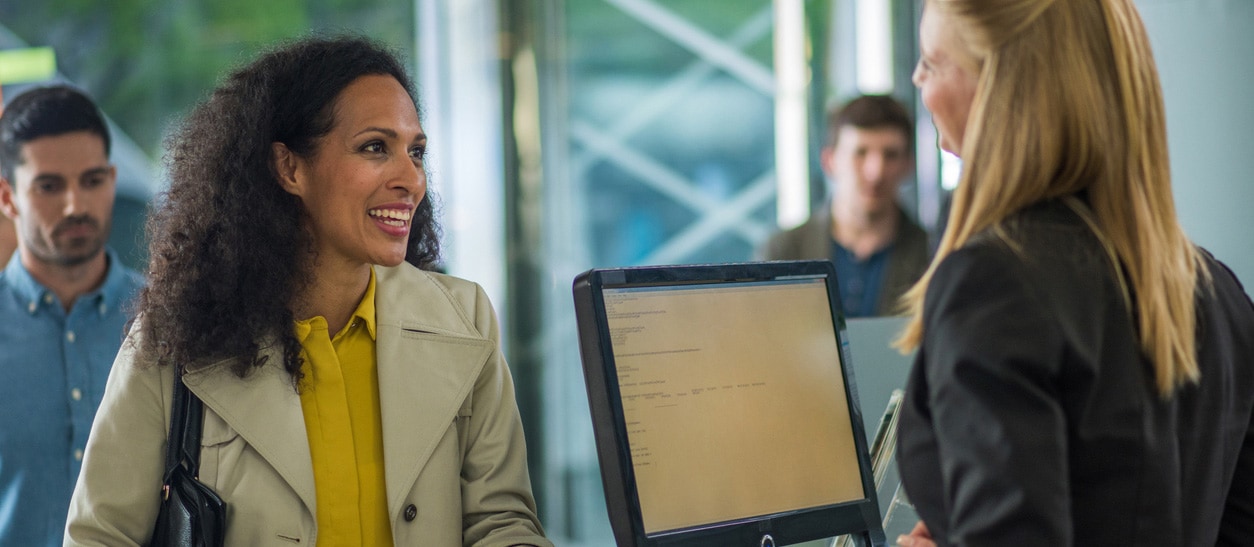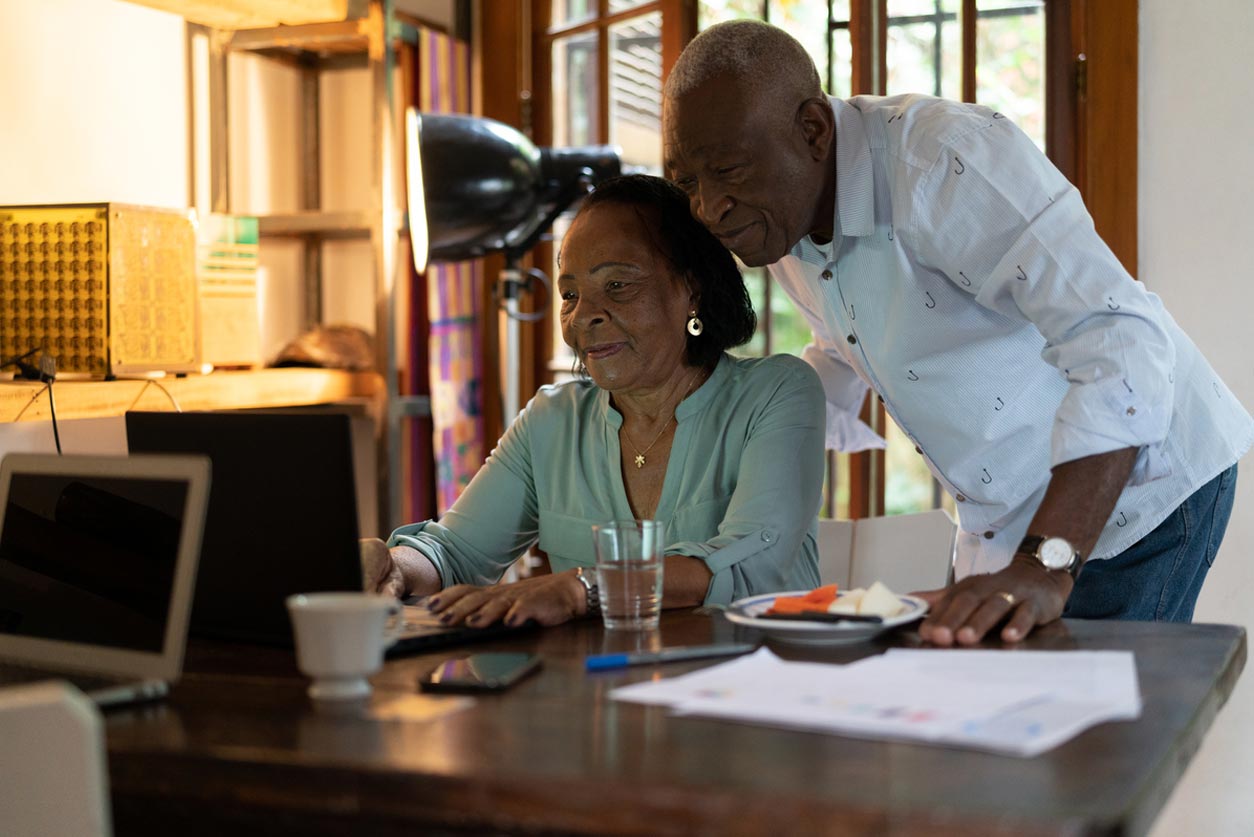How Can I Get a Cashier’s Check?
4 Min Read | Last updated: August 9, 2024

This article contains general information and is not intended to provide information that is specific to American Express products and services. Similar products and services offered by different companies will have different features and you should always read about product details before acquiring any financial product.
If you need a cashier’s check, where do you start? Here’s the lowdown on where to get a cashier’s check, what it costs, what information you need to provide, and more.
At-A-Glance
- You can get cashier’s checks at banks and credit unions, usually one where you already have an account.
- It’s good to be prepared with your identification, double-checked information for the person or business you’re paying, and the amount of the check.
- You’ll likely pay a fee.
Chances are, if you’re about to make a large purchase or other significant financial transaction, you may be asked to pay for part or all of it using a cashier’s check, rather than a personal check from your own bank account. Cashier’s checks are generally considered more secure than cash and a better guarantee of valid payment than a personal check because cashier’s checks are drawn on the bank’s funds, not your personal funds.1 But how do you go about getting a cashier’s check?
First, it helps to understand why you might need a cashier’s check in the first place: Businesses sometimes prefer cashier’s checks for large transactions, particularly when it’s a person making the payment rather than another business. The reason is that, unlike a personal or certified check, a cashier’s check is drawn on the bank’s own funds, not the funds of the payer (the individual writing the check).1 For more about cashier’s checks in general, read “What Is a Cashier’s Check?”
Where Can You Get a Cashier’s Check?
Cashier’s checks are issued by banks and credit unions. Typically, you would get a cashier’s check at a bank where you already have an account, like a checking or savings account. The bank uses money from your account to fund the cashier’s check.1 Most tellers at the bank should be able to assist you with obtaining a cashier’s check; you probably won’t need to see anyone more senior, such as a personal banker, unless there are special circumstances, like requests for unusually large amounts of money.
Theoretically, a person should be able to walk into any bank or credit union to purchase a cashier’s check as long as they can provide funds for the check (e.g., cash or a transfer from their account). However, some banks offer these services only to customers, so it’s a good idea to call ahead to confirm whether the service is available.1
Some banks will let existing customers purchase cashier’s checks online.1 In such cases, your bank would handle the transfer of funds from your bank account and send you the cashier’s check by mail. This process obviously takes longer than going to the bank in person, so if you want to purchase a cashier’s check online, make sure to allow a few extra business days for processing and shipment.
What Info Is Needed to Get a Cashier’s Check?
Taking out a cashier’s check is similar to making a cash withdrawal of money from your bank account to pay a specific person or business. Here’s what you usually need to bring when going to your bank to get a cashier’s check:2
- Government issued photo ID: The bank usually requires this to pull money from your account to create the cashier’s check, just as they would for a cash withdrawal from that account.
- Your bank account number: Your bank might be able to pull up this information based on your name, but it helps to have your bank account number ready so you can easily identify which account to access to fund the cashier’s check. This is especially important if you have more than one account at your bank.
- Name of the payee: This sounds straightforward enough, but for businesses, you want to have the full business name spelled correctly, including any abbreviations and designations like “Inc.” or “LLC.” The payee may not accept the cashier’s check if it doesn’t match their formal business name exactly.
- The amount: This should also be exact, so double-checking is a good idea. You probably don’t want to go through the effort of getting a cashier’s check and delivering it to the payee only to have to start over again because of an incorrect payment amount.
Do Cashier’s Checks Have Fees?
Banks may charge a fee for issuing cashier’s checks, even for their own customers.1 The exact amount varies by bank, but it’s typically in the range of $7 to $11.3 Banks usually take the fee from the same account that’s funding the cashier’s check. In other words, if your bank charges a $10 fee for cashier’s checks, and you need to take out a cashier’s check for $1,500, your bank will withdraw $1,510 from the account you specify.
Don’t Forget to Get a Receipt
It’s a good practice to ask your bank for a receipt for cashier’s checks they issue for you.2 This may come in handy if the check gets lost, for example.
The Takeaway
Even in the age of electronic payments, many individuals and businesses prefer large payments via cashier’s check. It’s therefore important to know how to get a cashier’s check: what information you need to bring with you and what kinds of fees to expect, as well as where to get a cashier’s check in the first place. Banks and credit unions should be able to provide this service in person, and many offer the service online.
1 “What’s the Difference Between a Money Order and a Cashier’s Check?,” Experian
2 “What Is a Cashier’s Check and How Does it Work?,” Experian
3 “Cashier’s Check Fee Comparison at Top 10 U.S. Banks,” My Bank Transfer
SHARE
Related Articles
4 Tips for Better Financial Habits
Good financial habits can help you improve your overall financial well-being. Learn how these four tips can help jumpstart your journey to financial success.
How Often Should You Check Your Credit Report and Score?
It's a good idea to check your credit report regularly in order to spot errors or signs of fraud. Learn how easy it is to check on your credit health.
How to Write a Check
Learn how to write a check in six steps, including dating your check, writing in the payee, filling in the numerical amount, and writing out the amount.
The material made available for you on this website, Credit Intel, is for informational purposes only and intended for U.S. residents and is not intended to provide legal, tax or financial advice. If you have questions, please consult your own professional legal, tax and financial advisors.










